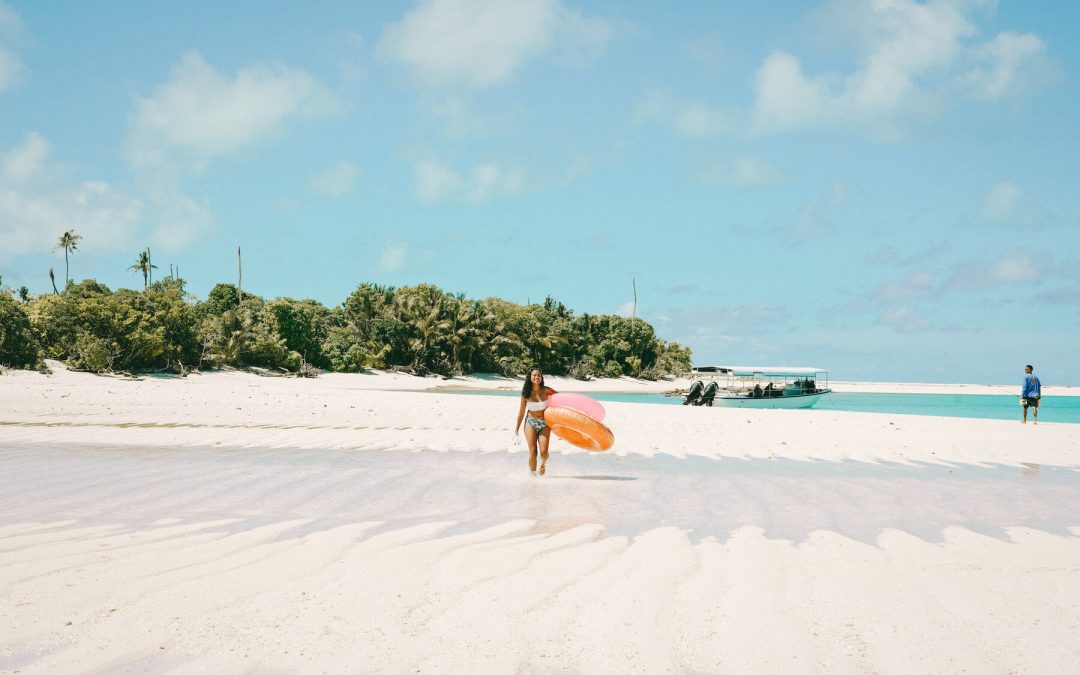Alii! (a-LEE; “Hello” in Palauan) Welcome to Min-On’s Music Journey. Today, the Min-On Concert Association and the Embassy of the Republic of Palau in Japan welcome you to Palau, a country in the Pacific Ocean.
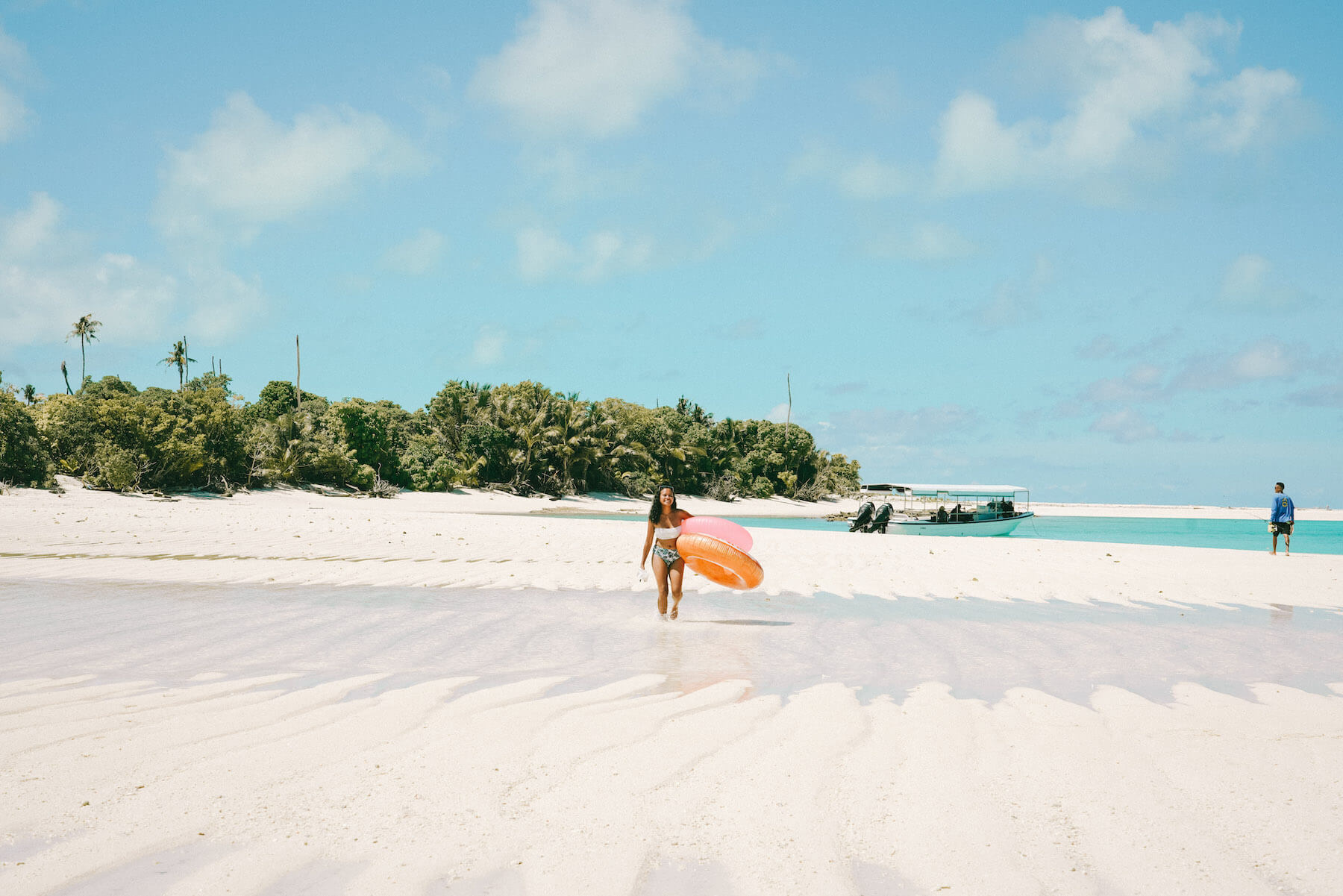
Palau is an archipelago of 340 islands. Of these, just nine are inhabited, including Babeldaob, the largest island and home to the country’s capital, Ngerulmud in the state of Melekeok, and Koror, the economic heart of Palau. For this reason, the natural beauty of many of the country’s islands remains untouched.
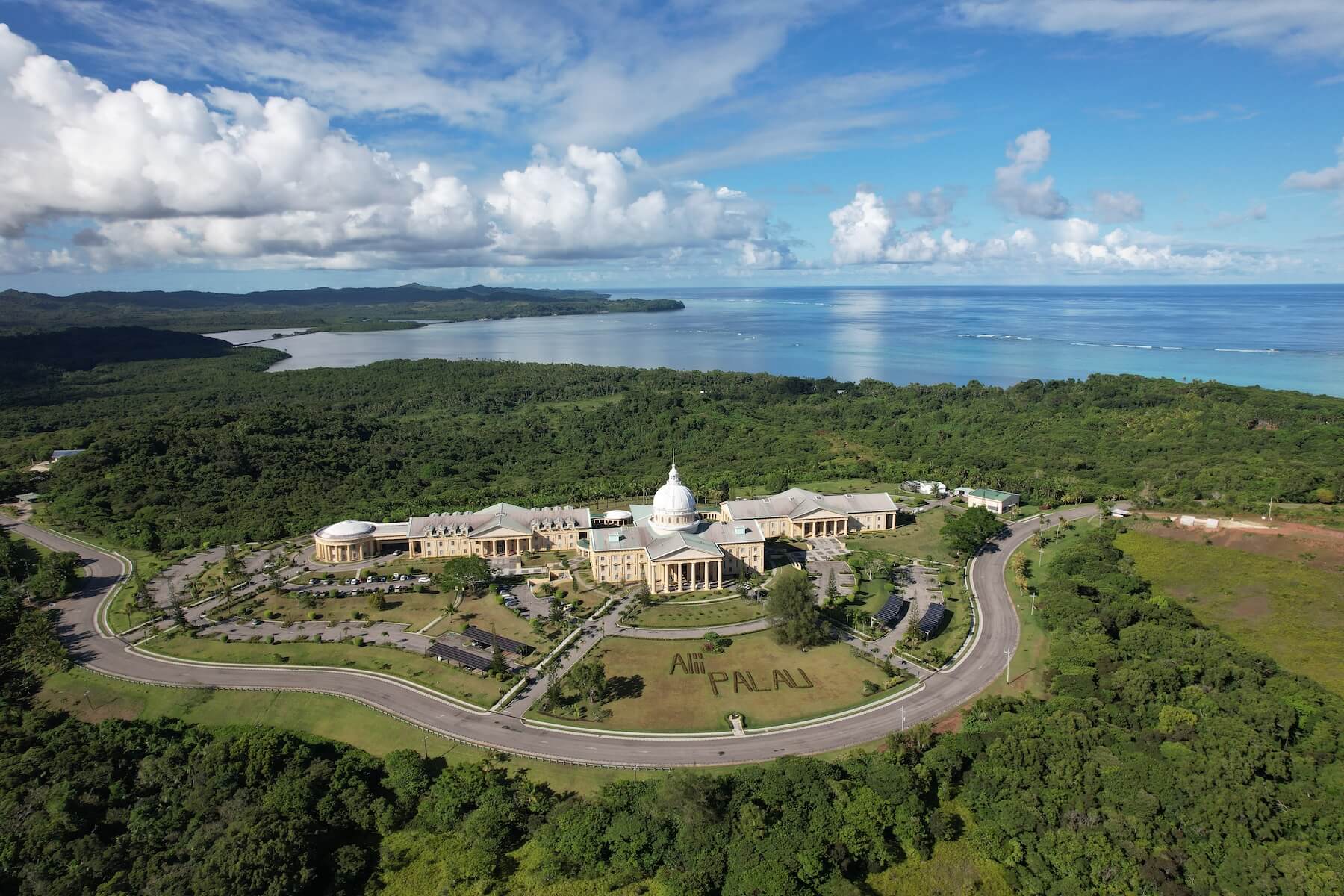
In Japan, resorts blessed with beautiful beaches and vibrant flora and fauna are often described with a sense of admiration as “South Sea Islands,” and Palau also fits this image perfectly.
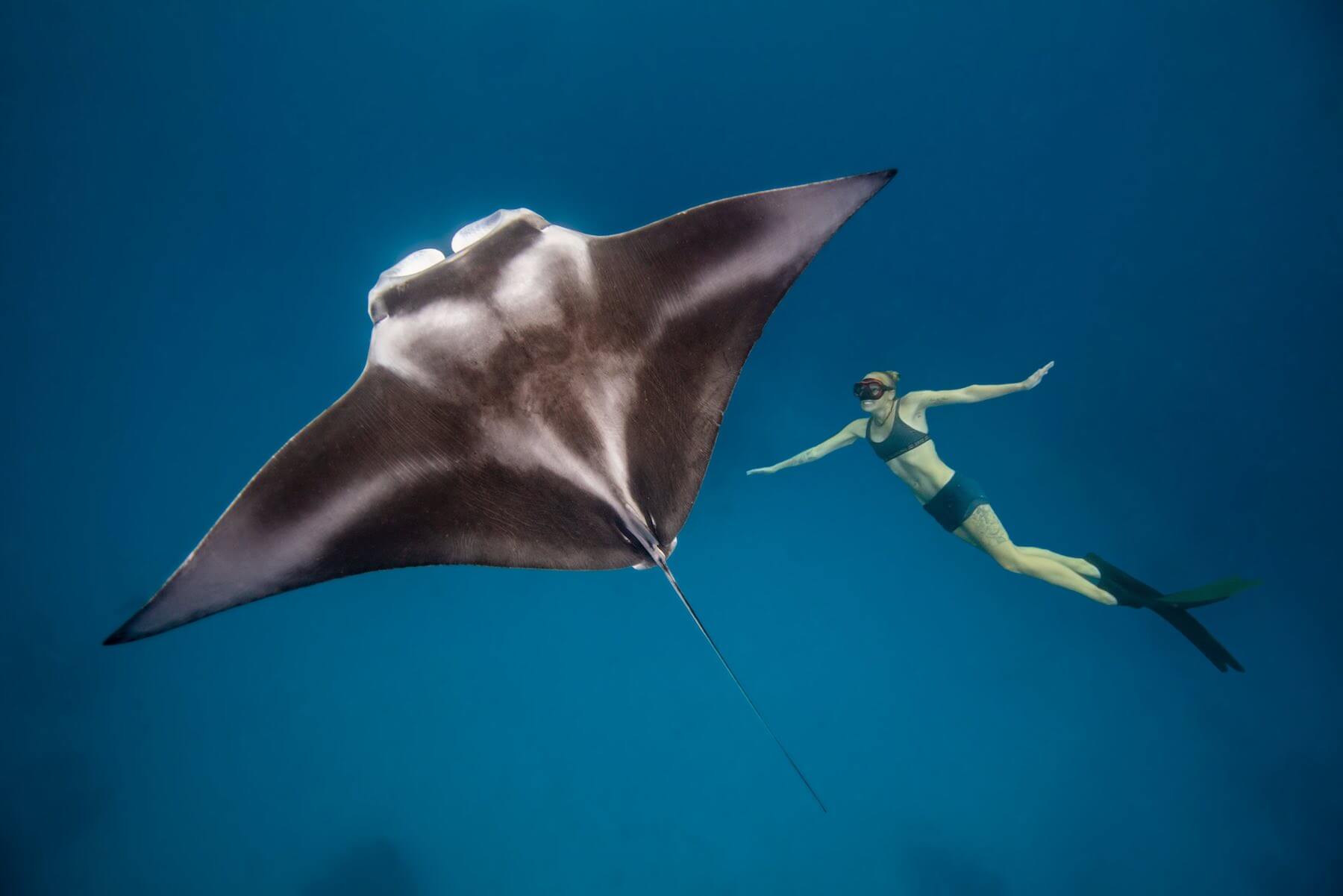
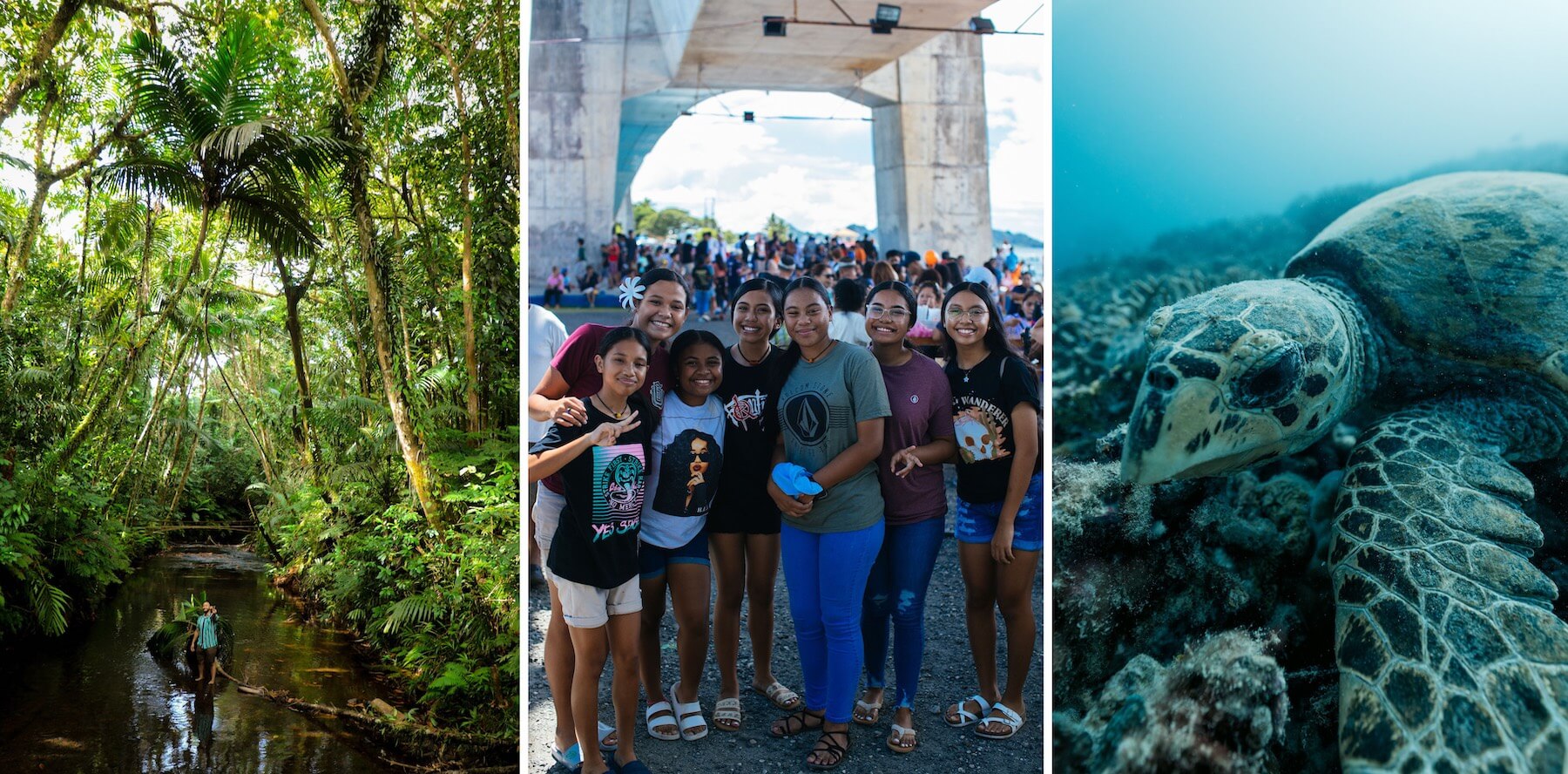
| Travel guide for Palau
・Dive into the sparkling marine blue ocean |
Palau’s deep connections with Japan
Palau has deep historical ties to Japan. After World War I, the country was a mandatory territory of Japan for several decades, and many elements of Japanese culture and customs continue to be practiced today.
Here are a few symbolic examples of Japan’s influence on Palau:
| ・Japanese is still the official language in the state of Angaur, to the south of the Palau archipelago ・NHK is broadcast in Japanese in the country’s restaurants ・Palauan includes some 1,000 words of Japanese origin |
Another cultural element that illustrates the connection between the two countries are itabori storyboards. This technique of wooden relief carving was originally proposed by Hisakatsu Hijikata, a folklorist and sculptor who was assigned to a public school in Palau in 1929, where he was impressed by the decorations on the local “bai” (a traditional meeting house for governing elders) and proposed itabori as a means of preserving them.
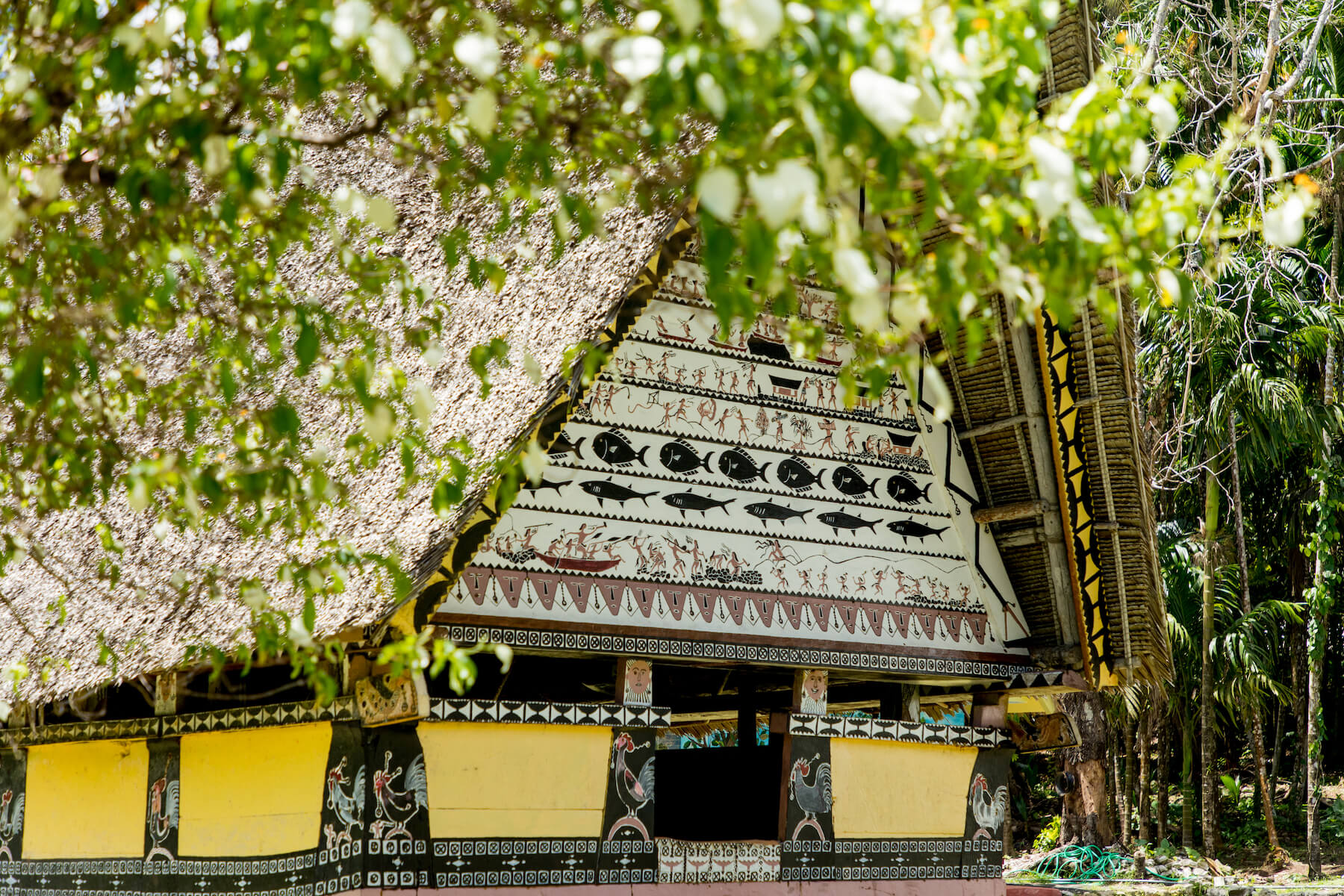
Passed down to local children, the art of wooden relief carving has been preserved as storyboards, and today these storyboards depicting Palauan mythology are popular as artifacts.
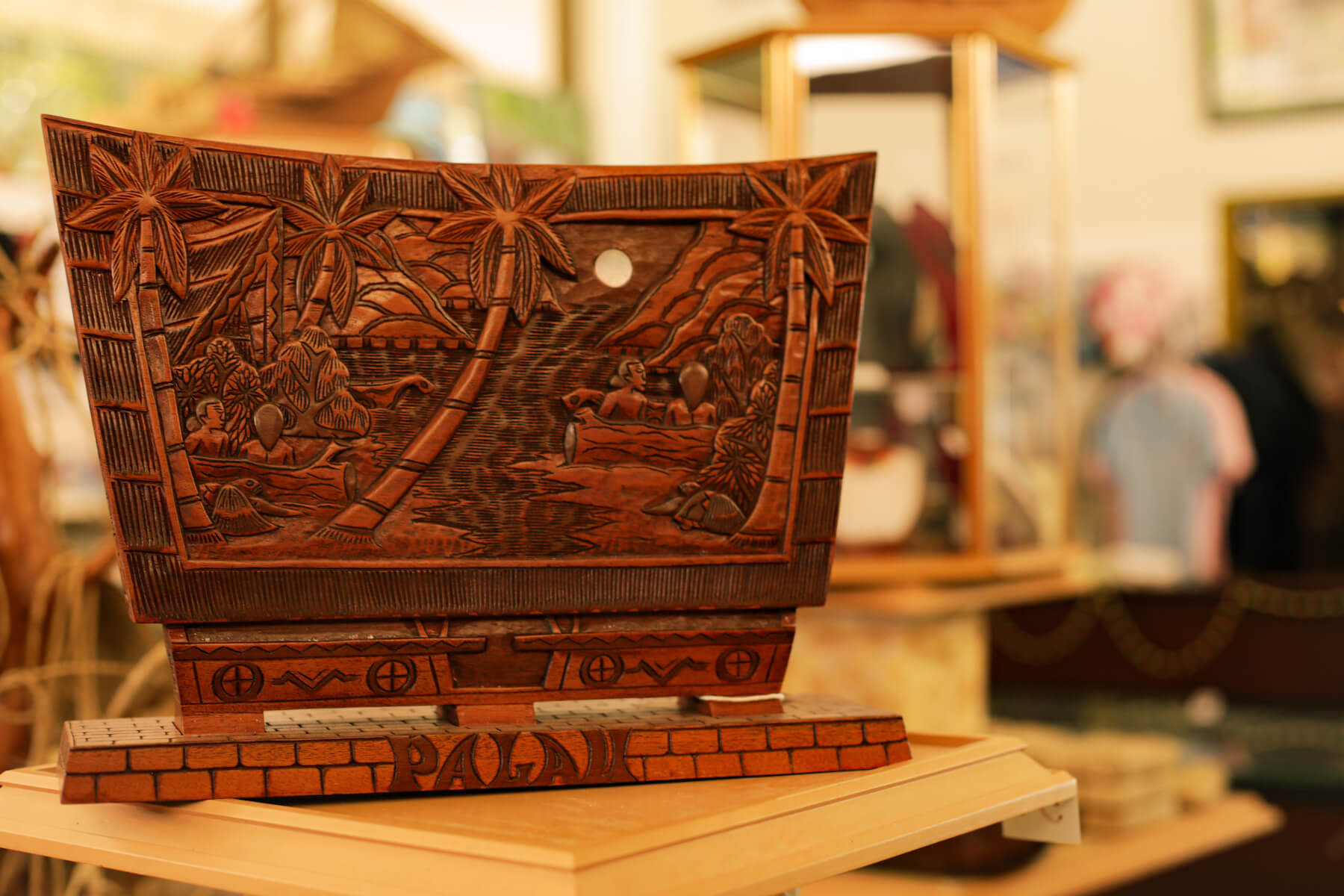
Environmental initiatives to preserve the Palauan island paradise
Palau is a major tourist destination, attracting approximately 100,000 visitors every year, or five times its population of 20,000. Visitors to this island Eden are greeted by such breathtaking natural wonders as the Rock Islands Southern Lagoon – a World Heritage Site, and the mysterious turquoise waters and white limestone mud of the Milky Way.
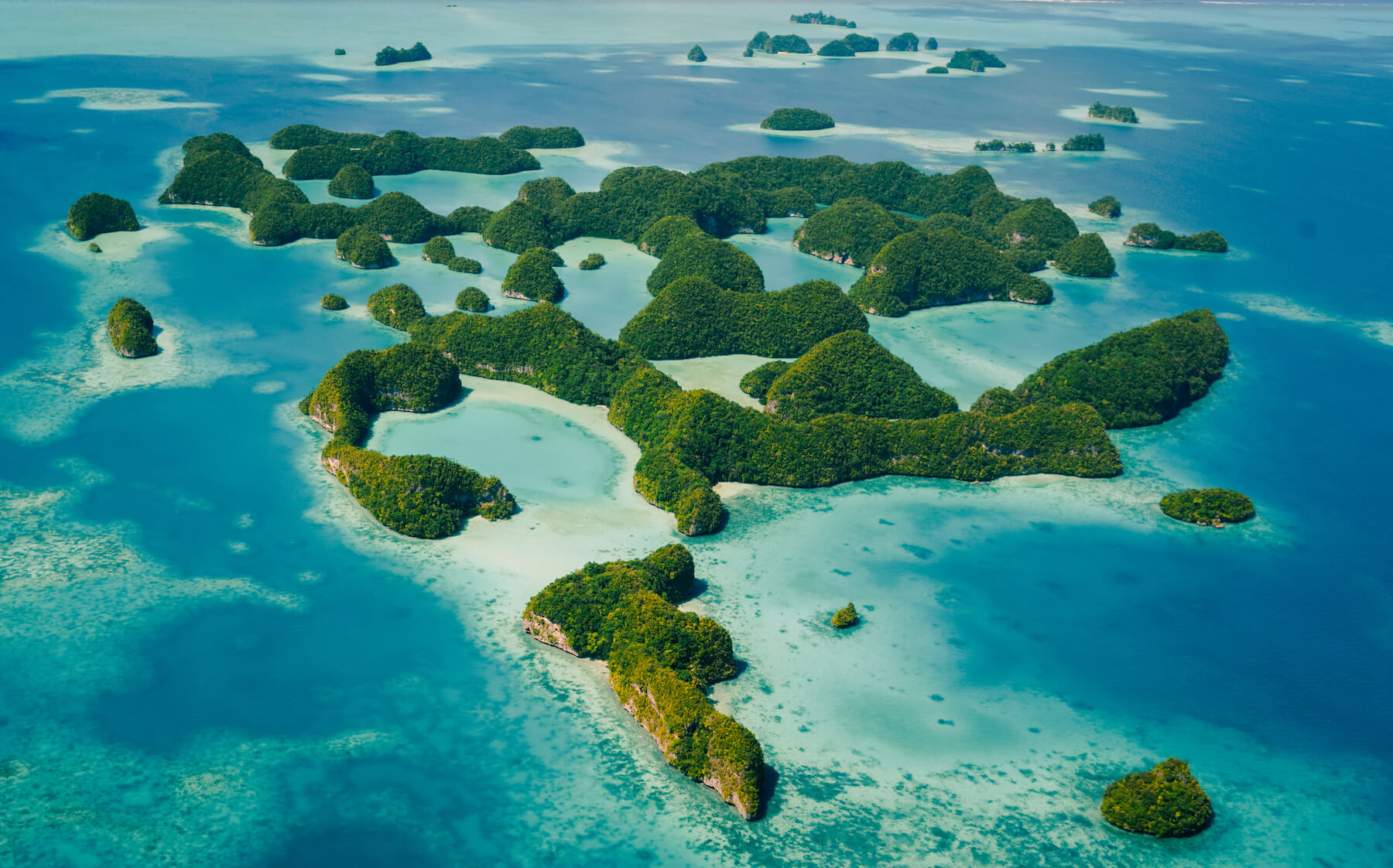
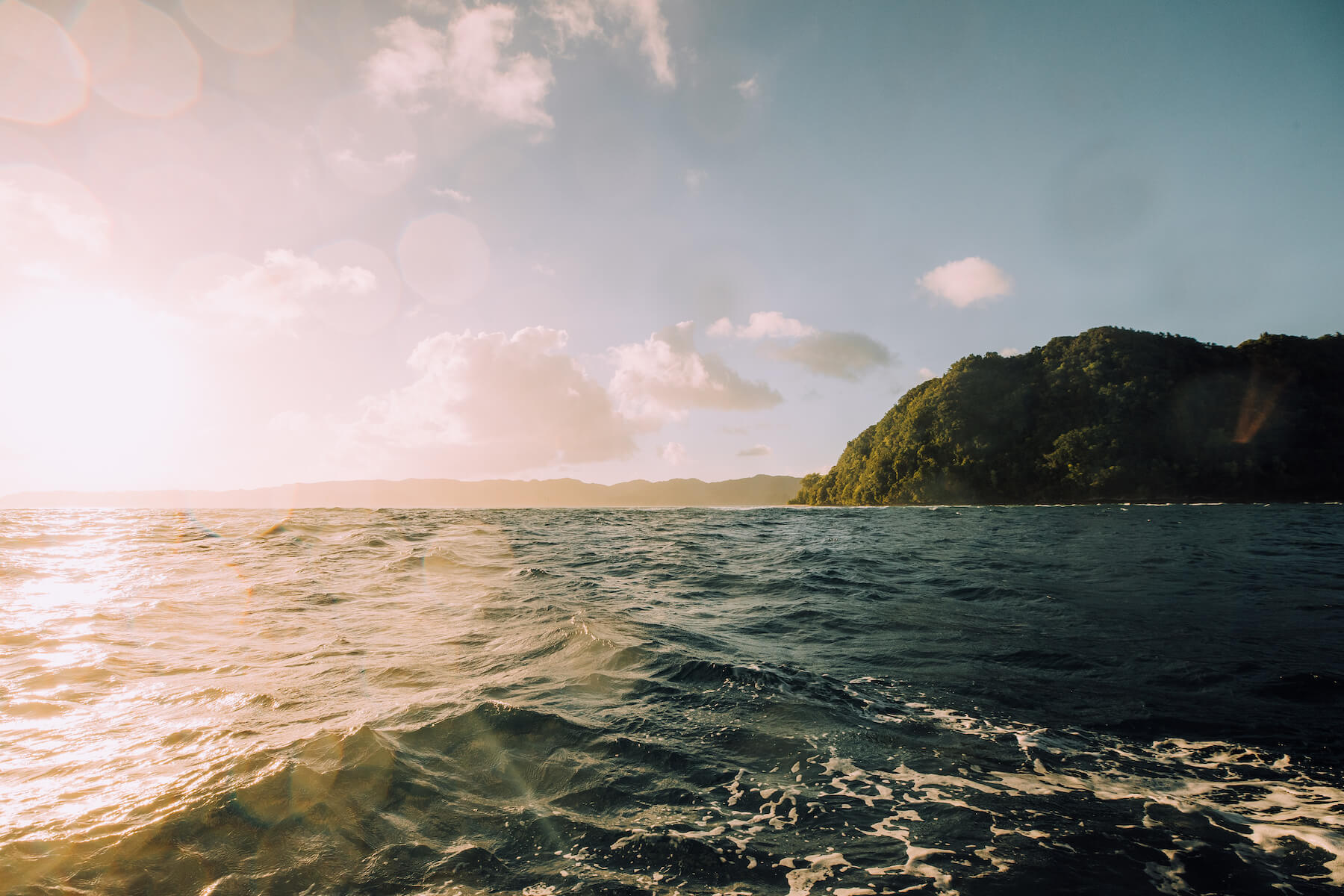
To protect this beautiful paradise, Palau has long been committed to protecting its environment and is a leader of global sustainable tourism today.
Palau Pledge
The Palau Pledge is the name of the stamp placed in the passports of visitors entering Palau. The stamp is available in multiple languages and must be signed in the space provided in the presence of an immigration officer upon entry.
The Palau Pledge won top honors at the Cannes Lions International Festival of Creativity: the world’s most prestigious awards for creativity, innovation and communications, in three categories in 2017 and 2018.
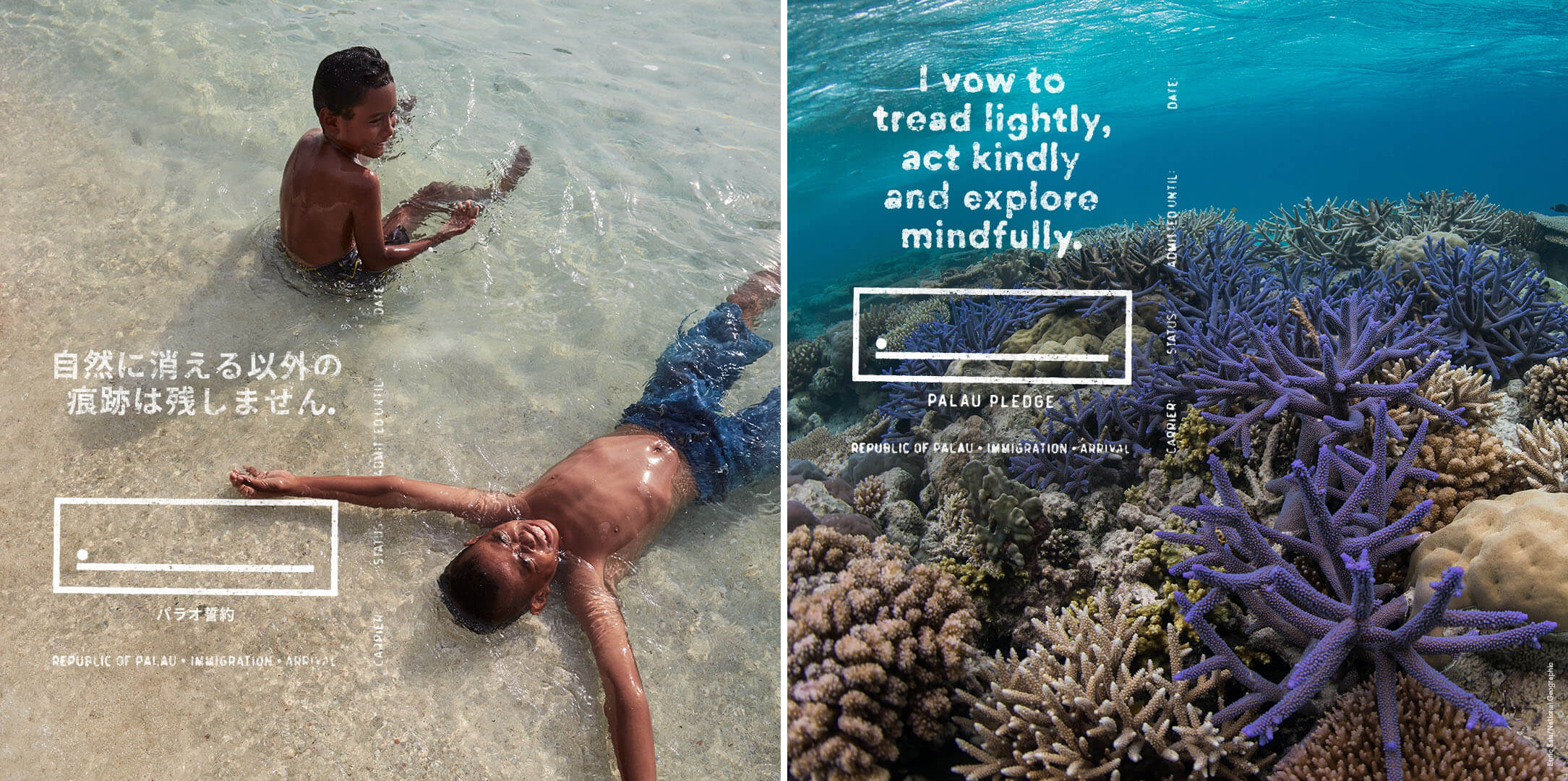
PNMS (Palau National Marine Sanctuary)
In 2015, Palau designated 500,000 square kilometers of ocean as a marine sanctuary and enforced a ban on extractive activities such as fishing and mining in the area. As a result, the numbers of fish in the surrounding waters have risen greatly, and the effects of this ban are attracting worldwide attention.
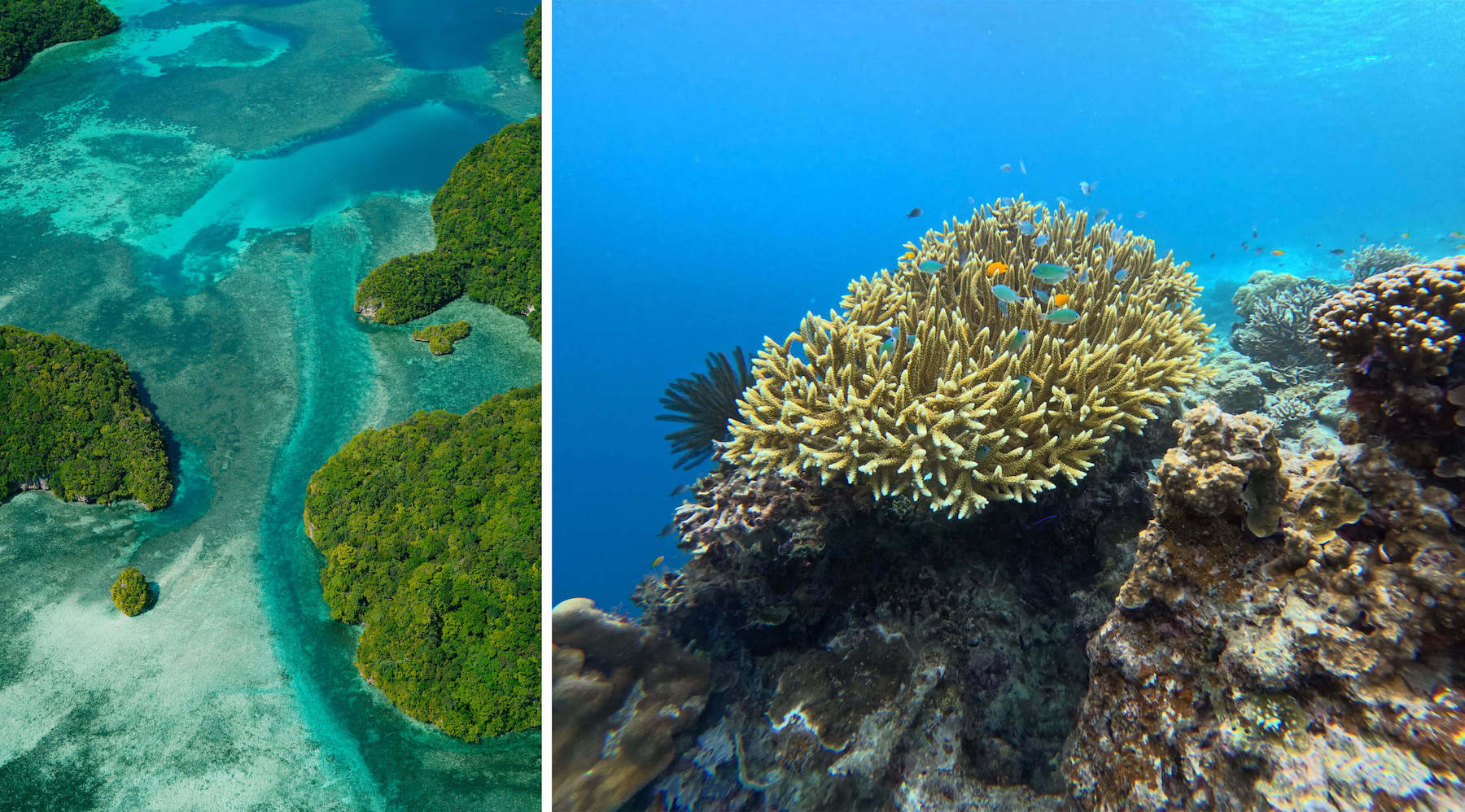
This is due in large part to a traditional custom of conservation known as “bul” that has existed in Palau for centuries. The fact the PNMS has not required military enforcement or similar measures to succeed can be attributed to “bul,” a custom that has been ingrained in the minds of the Palauan people from time immemorial.

Palau’s food culture
Palau’s cuisine is characterized by a fusion of the food cultures of the Micronesian region, Japan and the United States. Its cuisine is symbolized by traditional staples, taro and coconut, in addition to an abundance of seafood, including sushi and sashimi as in Japan.
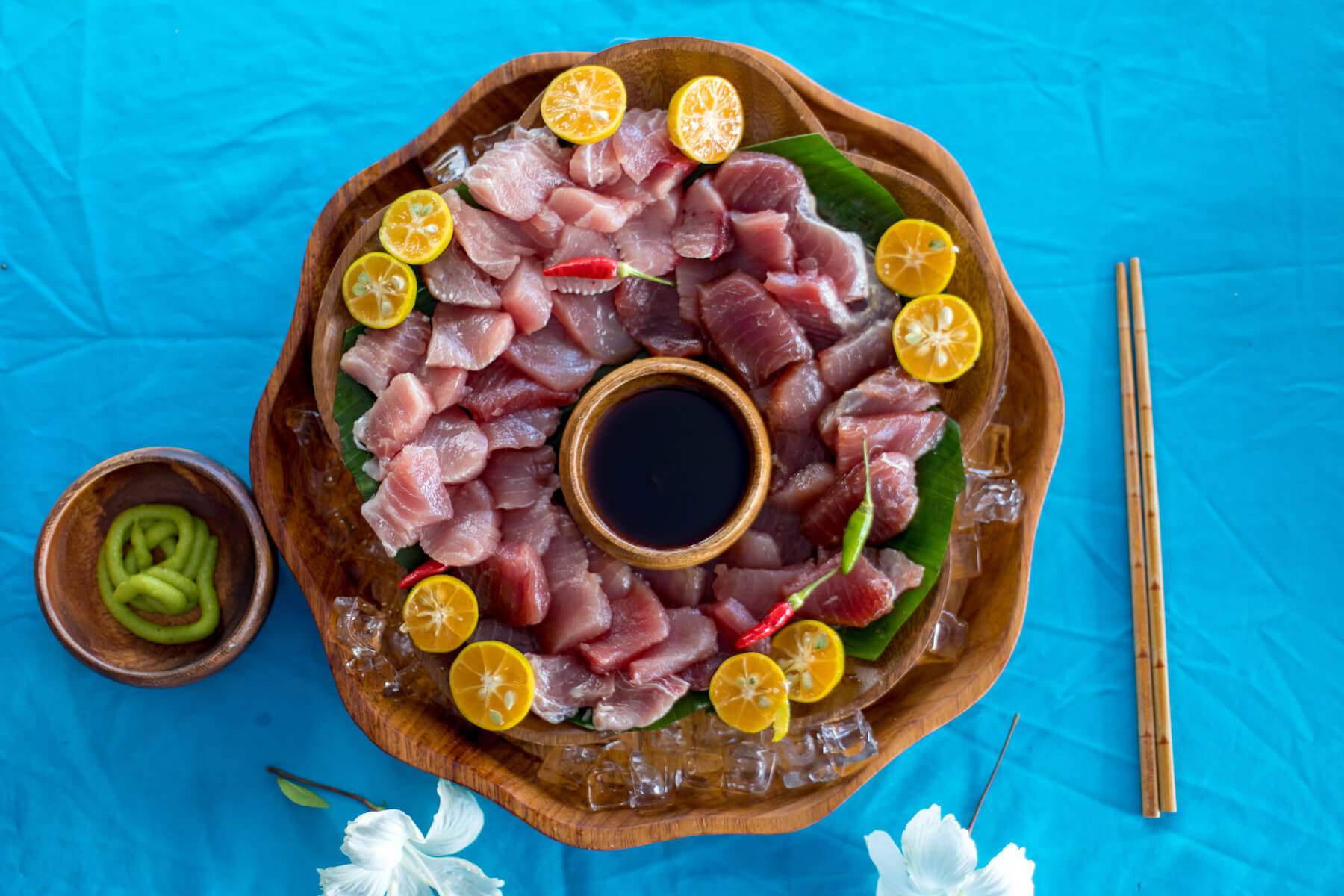
There are many Japanese restaurants downtown, and supermarkets offer a wide variety of Japanese seasonings, instant foods, sweets and other items. Palau is also known for an unusual dish, bat soup, which is made by boiling whole bats fed on a diet of fruit.
Despite its striking appearance, bat soup has a mild flavor and the meat has no odor. In Palau it is considered a feast and is served on special occasions.
The music of Palau
Palau’s musical culture, like its cuisine, incorporates elements of music from many different nations.

Derubesebes
The Palauan musical genre of derubesebes is a style of chanting that blends the Palau and Japanese language, and was created by referencing popular Japanese songs. People of high status sometimes compose original derubesebes songs based on their own experiences and leave them as a lesson to relatives and descendants.
Providing the next generation with memories of their family members who have passed away through recorded songs is a very meaningful tradition for Palauan clans.
Night markets
Sponsored by the Palau Visitors Authority and the Bureau of Tourism, the 680 Night Market is held twice a month on payday under the Japan-Palau Friendship Bridge Airai Side. Each market is centered around a theme, and people come to socialize and enjoy dancing to music in a venue lined with stalls selling delicious local foods and sundry goods.
A contest featuring the country’s leading artists was held for the first time in 2022 in recognition of the growing presence of local artists in recent years. Called the PNMS Song Contest, this song competition was part of the PNMS initiative.
As this competition was the first of its kind to be held in Palau, everything from its staging to the criteria for judging performances was decided by consensus. Featuring Palau’s top seven local artists, the concert took place at the Christmas night market and was a great success, attracting an unprecedented number of visitors.
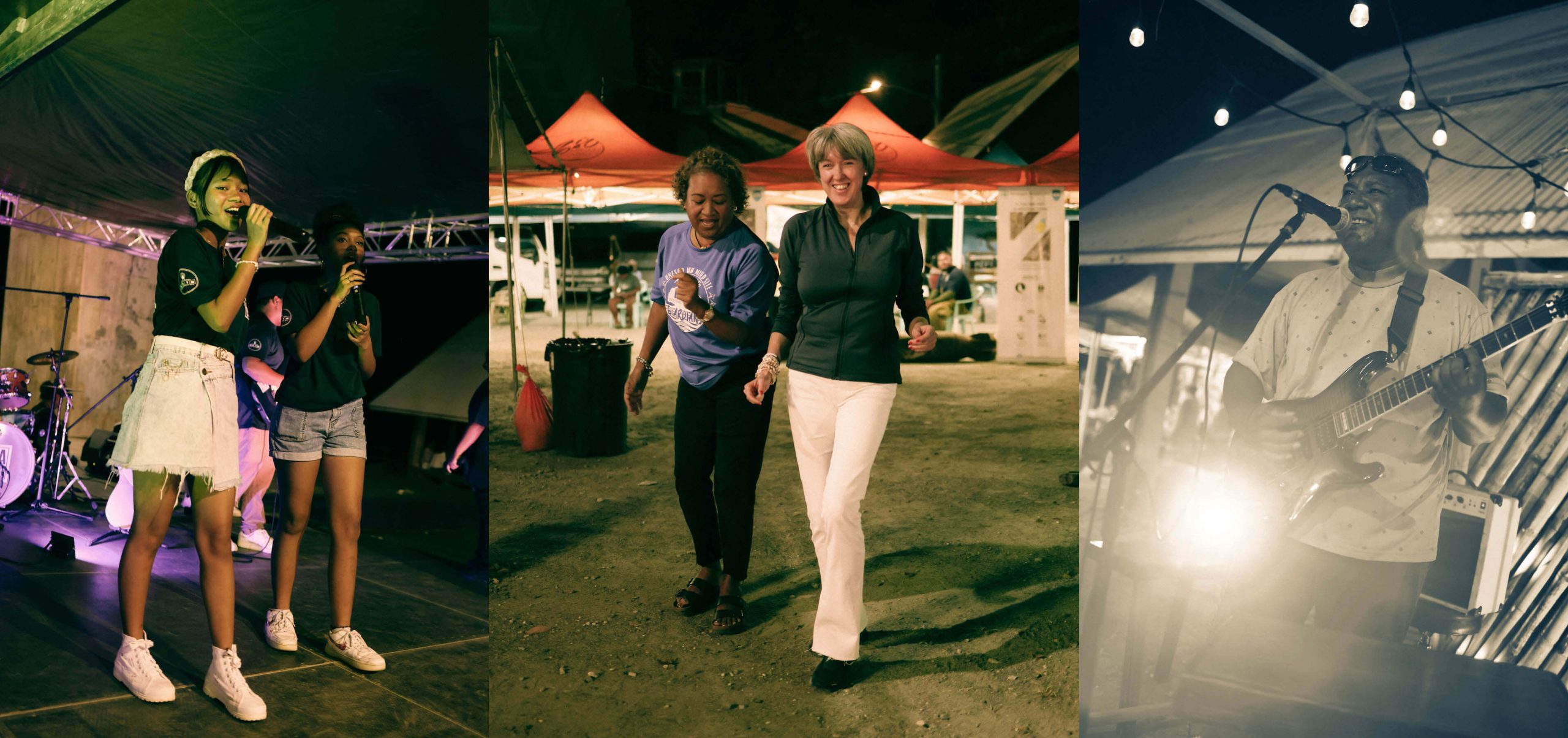
Please see a song below by singer and songwriter Kendall Titiml that won the contest.
Dodersii Belau – Kendall Titiml
Musicians recommended by the Embassy of the Republic of Palau in Japan
In closing, we would like to introduce musicians recommended by the Embassy of the Republic of Palau in Japan.
- Yoake Mae – Unknown
- Kitar Belau – Olkeriil Teteo, 1945
- Kele Ke Di Ngara Ngelbesek – Wataru Elbelau
- Natsukasii Omoide – Unknown, post 1963
What did you think of your music journey to Palau? There are still many more places to go! Please look forward to our next destination.

(Produced in collaboration with the Embassy of the Republic of Palau in Japan. Photos provided by with the Palau Visitors Authority.)
Min-On Concert Association
-Music Binds Our Hearts-


